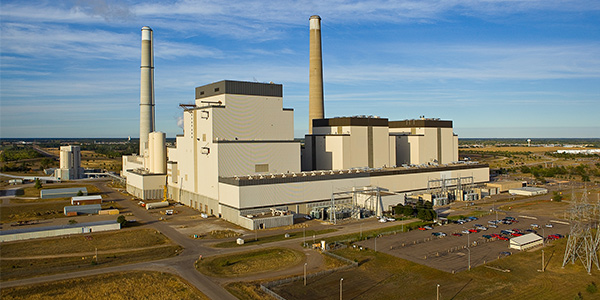Minnesota regulators this week approved Xcel Energy’s request to operate two of its four coal units on a part-time basis.
The Minnesota Public Utilities Commission’s order Wednesday allows Xcel to idle its Allen S. King Generating Station and Sherburne County Generating Station Unit 2 during the low-demand spring and fall shoulder seasons (20207-164928-02). Xcel asked in December for permission to implement seasonal operations.
Xcel spokesperson Matt Lindstrom said the utility expects to begin seasonal operations this fall.
The PUC said the move will save customers money and represents “a significant step toward meeting Minnesota’s greenhouse gas emission-reduction goal.” It opened a docket last year to investigate the self-scheduling of coal plants in the state.
“This is an important proposal, and I appreciate Xcel Energy bringing it forward,” Commissioner Matt Schuerger said in a release. “I think this highlights Xcel’s focus on saving their customers money, on meeting Minnesota’s environmental policies and in being responsive to the investigation the commission opened.”
The Union of Concerned Scientists applauded the order. The organization has blasted coal self-commitments as expensive and wasteful. In a recent UCS report, the group named Xcel subsidiary Northern States Power one of the worst offenders for uneconomic operation, saying it ran the two coal plants at a $56.9 million loss in 2018. (See UCS Analysis Knocks Coal Self-commitments.)
“Xcel Energy was identified as one of the most egregious actors in our analysis, but this news is a welcome change in behavior,” UCS Senior Energy Analyst Joe Daniel said in an emailed statement. “Xcel, like most utilities, was initially reluctant to recognize the costliness of uneconomic self-commitment. But now, both the utility and the state commission have codified a path forward that will save Xcel’s customers millions of dollars, not to mention the public health benefits of reduced pollution.
“Had all utilities given up their uneconomic coal plant operations in 2018, the average family in Minnesota would have saved $5/month on their electricity bills. Unfortunately, other utilities in Minnesota remain reticent when it comes to changing their operations,” Daniel said.
Xcel said its own analysis found the move could save its customers up to $1.45 million in 2020 and up to nearly $3.5 million by 2023. The commission said customer savings could be reflected in Xcel’s next rate case. The utility also estimated it will save about $13 million in operations and maintenance and another $7 million in capital costs through 2023.
Xcel also said seasonal operations would cut its greenhouse gas emissions by 4 million tons in 2020 and a little more than 7 million tons by 2023. The commission said the decrease could account for a quarter of Minnesota’s goal to reduce emissions 30% below 2005 levels by 2025.
“As we lead the clean energy transition with a plan to reduce carbon emissions 80% by 2030 and pursue our vision of 100% carbon-free electricity by 2050, we’ll pursue innovative ideas like seasonally operating our coal plants,” Xcel said in an emailed statement. “These changes will allow us to add more renewable energy for our customers, reduce carbon emissions and save money on fuel and operations costs, savings we can deliver to our customers.”
But even the seasonal operation will be finite, as both plants are slated for retirement by 2030. Xcel said the King plant will close in 2028 while all three Sherco units will shutter by 2030. The closures will make good on the company’s promise to quit coal by 2030 in its Upper Midwest service territory. (See Xcel Latest MISO Utility to Pledge Zero Coal.)
Lindstrom said that as Xcel idles coal plants, it’s focusing on avoiding workforce layoffs. He said the company will probably let some of the positions at its coal plants disappear as employees retire.
“As we look toward the future of our system and the eventual retirement of our coal plants, we are working with employees, communities and other stakeholders to develop specific plans for each area to determine how we can bring new jobs and capital investment to the region. We’ve transitioned coal plants in the past and believe we can do so without layoffs, by normal attrition and job retraining,” Lindstrom said.





